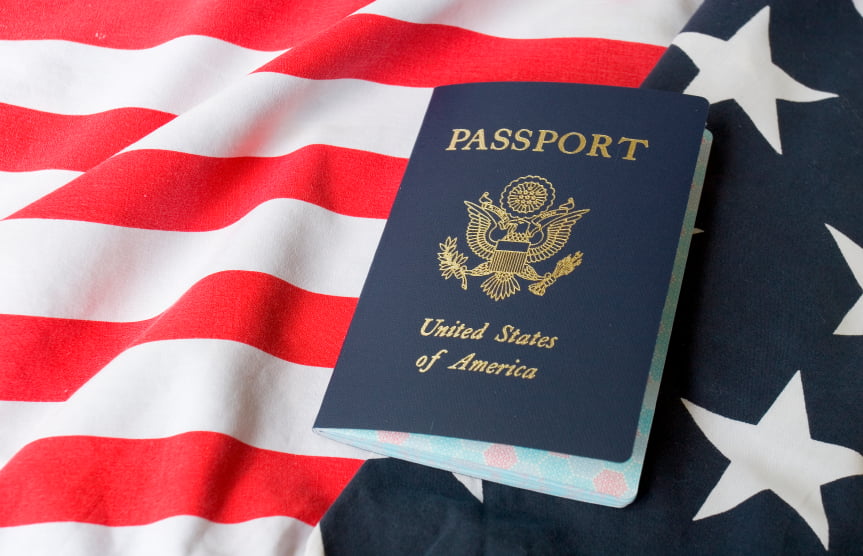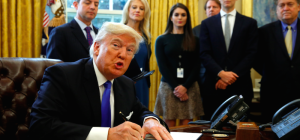 Immigration has been a long-standing, contentious issue in American politics. Early American history witnessed the Alien and Sedition Acts of 1798, which ruled that 14 years of residency were necessary before an ‘alien' could be grant citizenship. Later in to the nineteenth century, the 14th Amendment of 1868 addressed the matter of citizenship and equal protection under the law, resulting in African Americans being classed as citizens.
Immigration has been a long-standing, contentious issue in American politics. Early American history witnessed the Alien and Sedition Acts of 1798, which ruled that 14 years of residency were necessary before an ‘alien' could be grant citizenship. Later in to the nineteenth century, the 14th Amendment of 1868 addressed the matter of citizenship and equal protection under the law, resulting in African Americans being classed as citizens.
Closer to the present day, 1952 saw the introduction of the Immigration and Nationality Act, which set annual immigration quotas for countries across the world. George W. Bush then introduced the infamous Patriot Act in 2001, ruling that ‘aliens' could be denied admission or deported if found to be associated with antiterrorist efforts or if found to have endorsed or actually been part of terrorist activity. Inextricably linked to the war on terror, the Patriot Act gave greater authority to those responsible for tracking down illegal immigrants, granting them permission to use FBI systems to check criminal records.
With regard to the Mexican border, the problem of illegal immigration did not just suddenly appear. Mexicans desired a better life for themselves and employers exploited their aspirations as a means to gain cheap labour, but as time progressed the Latino vote became too important for the government to ignore. George W. Bush even declared that America ‘needed the immigrant worker', essentially giving the go ahead for the border to stay open. Although the consumer will reap cost saving benefits of illegal immigration, the illegal drug smuggling industry is one of many negativities that accompany the border issue. However, politicians in favour of closing the border entirely are deemed to be racist. Other politicians care too much for the Latino vote and maintaining their own position in Washington.
However, the arresting of drug cartel leader Miguel Angel Trevino has coincided with Congress planning a massive $6 billion immigration reform bill. Trevino's arrest is good news with regard to cartel violence, which has recently seen a Texan man, with no connection to illegal drugs, kidnapped and transported back to Mexico where he was later executed. The lax border control can be attributed to this incident, and previous episodes forced officials to make a stand against Capitol Hill and call for reform and action.
The President of the Immigration and Customs Enforcement Union, Chris Crane, has repeatedly appealed to Congress to take issue with the border and subsequent cartel violence, only to see his pleas ignored. Recent reports have found that 69% of Americans want to see US military personnel placed along the border to act as deterrence to drug violence in the Southern States.
The afore mentioned immigration reform bill is currently acting as a double-edged sword before its eventual implementation. The notion of a time limit has sparked a rapid influx on those entering the country and hoping to embark on a ‘path to citizenship' they have seen so many others complete. Regardless, the reform bill is likely to turn the border in to a militarised zone as new surveillance measures include unmanned drones, radar technology developed in Afghanistan and thermal imaging cameras.
Republican senators John Hoeven and Bill Corker introduced this specific amendment to the bill, and the prospect of continuous surveillance would result in the creation of a virtual military zone, a cause for concern among civil liberties groups. The thermal imagining systems would allow for the detection of human bodies at night and the amendment calls for ‘continuous and integrated manned or unmanned, monitoring, sensing or surveillance of 100% of southern border mileage or the immediate vicinity of the southern border.'
Whilst customs and border protection currently operate 339 remote video surveillance systems along with 15,000 ground sensors and 851 thermal imaging devices, these numbers will increase by the end of the year, as will the number of unmanned drones. As President Obama continuous to reduce unit numbers in Afghanistan, military contractors are looking for new markets to exploit - the $6 billion being poured in to border control presents a fitting alternative. And so beings America's war on immigration…







